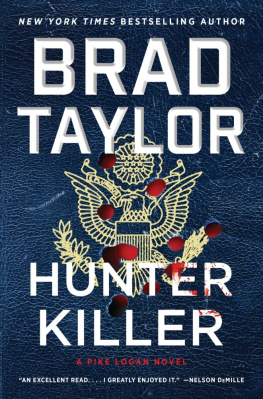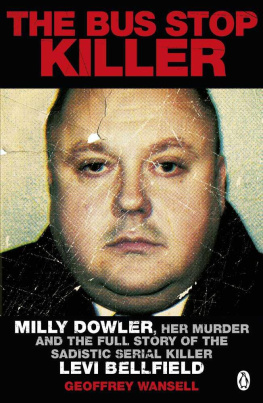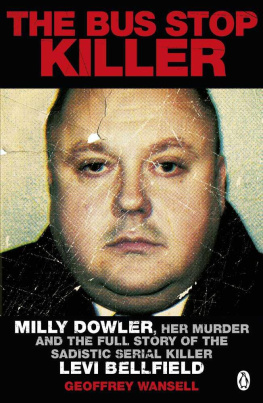Geoffrey Jenkins - Hunter Killer
Here you can read online Geoffrey Jenkins - Hunter Killer full text of the book (entire story) in english for free. Download pdf and epub, get meaning, cover and reviews about this ebook. genre: Adventure. Description of the work, (preface) as well as reviews are available. Best literature library LitArk.com created for fans of good reading and offers a wide selection of genres:
Romance novel
Science fiction
Adventure
Detective
Science
History
Home and family
Prose
Art
Politics
Computer
Non-fiction
Religion
Business
Children
Humor
Choose a favorite category and find really read worthwhile books. Enjoy immersion in the world of imagination, feel the emotions of the characters or learn something new for yourself, make an fascinating discovery.

- Book:Hunter Killer
- Author:
- Genre:
- Rating:5 / 5
- Favourites:Add to favourites
- Your mark:
- 100
- 1
- 2
- 3
- 4
- 5
Hunter Killer: summary, description and annotation
We offer to read an annotation, description, summary or preface (depends on what the author of the book "Hunter Killer" wrote himself). If you haven't found the necessary information about the book — write in the comments, we will try to find it.
Hunter Killer — read online for free the complete book (whole text) full work
Below is the text of the book, divided by pages. System saving the place of the last page read, allows you to conveniently read the book "Hunter Killer" online for free, without having to search again every time where you left off. Put a bookmark, and you can go to the page where you finished reading at any time.
Font size:
Interval:
Bookmark:
Geoffrey Jenkins
Hunter Killer
Easy is the descent into the dark deeps!
But to retrace your way and issue into space-there is the toil and there is the task!
Virgil, Aeneid
COMMANDER GEOFFREY PEACE R. N.
Geoffrey Peace was dead.
I could not believe it. For three days, ever since a naval officer had enquired ' Mr. John Garland?' and handed me that agonizing message from the flagship, I had not believed it. Even when the ominous shape, covered by a tarpaulin, had been brought alongside in a launch by a naval party, my mind rejected the thought. But now there could be no doubt: I stood looking through the glass trap in the coffin lid into the hard face of the man who had been so much a part of my life: Commander Geoffrey Peace, Royal Navy, D.S.O. and two Bars.
Death had not softened the clean-shaven face; the strong jaw with the cruel line of the mouth was held shut by the black rubber diving-cap he had worn at the time of his death. They had dressed the body again in the underwater suit. Its cowled effect brought no feeling of sanctity but rather one of evil, or-I told myself in hurried excuse for the dead-the desperate rejection of any hope of afterlife, like the wild keen of a piper's lament in the Outer Isles.
Geoffrey Peace should not have died like this, I thought angrily-to be hauled from a few feet of water with heart failure. Automatically my eyes sought the hands which had sent so many other men to their deaths, but they were hidden. All the Peaces had died hard. A strange resentment welled inside me that this one should have met his end so tamely after so violent a life. Simon Peace, his grandfather, had gone to meet his Maker with the cry of the sea and England on his lips; old Sir John Peace, his piratical ancestor who had terrorized the Indian Ocean, had been cut in half on his own quarterdeck by a triple-shotted broadside. But Geoffrey Peace, who was in the full glare of the public spotlight in Britain and America because of his part in the controversial American Navy missile project, had died no more excitingly than an overfed businessman who drops dead after a dip at Ramsgate.
Now he lay ' slung atween the roundshot '-not old Sir John's way, perhaps, but as near as they could get to it in this age when men had already stepped on to the moon; for Geoffrey Peace's wasn't an ordinary coffin at all. The coffin at which I looked was steel, fashioned like a cylinder: it 7 might have been a section of torpedo-tube or, more likely, a length of discarded missile-casing from a cruiser in the bay. No, it couldn't be that, I realized, bending closer. The metal Was riveted, not welded, and a missile needs a smooth bore. I ran my fingers unseeingly along the line of grey-painted metal studs. Perhaps if the sight of my dead comrade-inarms had not affected me so greatly, I might then have suspected something of the secret which was to shock the world and the United States in particular.
The sound of a powerful jet engine overhead jerked my attention away from the dead man's face. Here were the top brass coming to pay their last tribute to Geoffrey Peace. The plane circled the anchorage. Peace was ' lying in state' aboard his own luxury motor-yacht, Bellatrix. In the bay, backed by palm-fringed islets, I could see the American Seventh Fleet, a magnificent array of fighting ships. Among them were two of the new Shenandoah-class nuclear subs, replacing the first Polaris-firing George Washington class, which had become obsolete in the early 1970's. To the north-east lay the Royal Navy's new Limuria Squadron, a crack task-force which had again raised the Navy's battle ensign of glory after the long starved years of the 'fifties and 'sixties. It did my sailor's heart good to see the lean, deadly silhouette of two Lochclass cruisers, Loch Vennachar and Loch Torridon. Complementing the American submarines were the British Devastation-class nuclear subs. Bellatrix was at anchor in Port Victoria, Mahe Island, largest of the Seychelles group in the northern Indian Ocean. The Seychelles, a 5,000-square mile agglomeration of islands, atolls, cays and coral reefs, lie about one-third of the way between East Africa and India. This group stands at the head of another immense chain stretching away boomerang-shape for over 1,000 miles to the south-east. The northern pivot is Mahe and the southern Mauritius. These islands-often no more than a fringe of coconut palms round a strip of sand a few feet above water-level-have been named collectively Limuria. They are inhabited by fewer than 2,000 people spread over tens of thousands of square miles of sea. The islands are believed to be the last visible peaks of a drowned continent which once lay between Africa and Australia. The inhabitants-descendants of pirates, natives and slaves-speak Creole, a tongue which has mutated as far from its original French as have the strange animals of Limuria from their African homologues. Limuria is a never-never land of soft tropical islands and languor, a surfeit of sweetness among the endless palms, lagoons of breath-taking loveliness at dawn and sunset. Here, some years ago, Britain had established her big missile base. I screwed up my eyes against the afternoon sun and watched the big jet bank round Mount Howard, Mahe's northern tip, and circle over the densely wooded ravines and peaks which back Port Victoria. I lost it momentarily, then it reappeared from behind Morne Seychellois, the highest peak in the island, to make its landing approach. I turned away from it, sick at heart, dreading it for what it represented: the publicity ordeal of Peace's funeral, with myself as the chief mourner.
What secret did that hard face hold below the glass, the secret which he had summoned me to tell and yet, for reasons which had died with him, had held back for one week, a week which was to prove his last on earth? My eyes searched the dead face, tried almost to get beyond the half-closed lids, to find out.. What was it all about, I kept asking myself, as I had done while we had raced towards the Seychelles from
Mauritius, where we had met. I had sought the answer then, but in life Peace was not the man to be approached-not even by his closest friend-if he did not want to be approached. I saw now that his tense, highly nervous state in the days preceeding his death was not, as I, thought, due to the weight of his secret, but was caused by the shadow of the heartattack which had killed him. The superficial explanation he had given for asking me to come all the way to Mauritius from South Africa was, of course, a blind. That was clear to me soon after our meeting. I had left the Royal Navy to take charge (thanks to my knowledge of navigation) of the head office of NACCAM, an advanced commercial air and sea navigational system, in
Johannesburg. Under my supervision, we had installed navigational aids for ships and aircraft round the southern, strategic tip of Africa. Peace had cabled me asking if I would meet him to discuss the installation of a similar system in the islands of the Indian Ocean. He had suggested Mauritius as the rendezvous, since the island is only six hours by jet from Johannesburg. Peace's message came as a surprise to me, for I had been out of touch with him for several years, although his work in connection with the British missile mission to
America had kept his name constantly in the news.
For months before his death, Peace had been the centre of a bitter controversy over an Anglo-American missile. British scientists had developed a small light-weight nuclear power plant for missiles and satellites. The newspapers nicknamed it SNAP-System for Nuclear Auxiliary Power. The motor, according to the papers, was considerably in advance of anything in America or Russia. Peace had led a British technical mission to the United States, offering the Americans the new motor as a co-operative effort in space exploration. Britain made no secret of her pride in her invention, and SNAP was equally well received in the United States. Its merits were endorsed by no less a man than Marvin K. Green, the brilliant young American astronaut and scientist who had become Vice-President. MKG, as he was popularly known, had turned that rather stultifying office to splendid account as the representative of the new technocratic society which had sprung into being in the United States. He had assumed the chairmanship of Special Projects-an independent body answerable to the President only-whose function was the development of special American missiles. Special Projects was enthusiastic about SNAP, MKG and Peace formed a close friendship, and it seemed that a new bond in Anglo-American relations was about to be forged.
Font size:
Interval:
Bookmark:
Similar books «Hunter Killer»
Look at similar books to Hunter Killer. We have selected literature similar in name and meaning in the hope of providing readers with more options to find new, interesting, not yet read works.
Discussion, reviews of the book Hunter Killer and just readers' own opinions. Leave your comments, write what you think about the work, its meaning or the main characters. Specify what exactly you liked and what you didn't like, and why you think so.

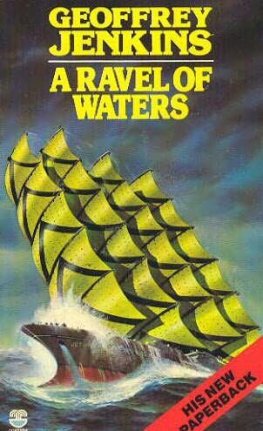
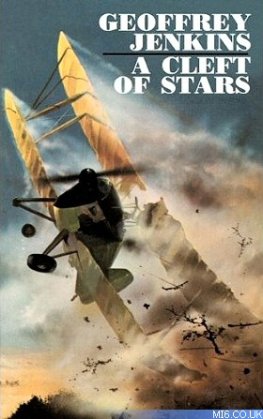
![George Wallace - Hunter Killer [Movie Tie-In]](/uploads/posts/book/848976/thumbs/george-wallace-hunter-killer-movie-tie-in.jpg)
